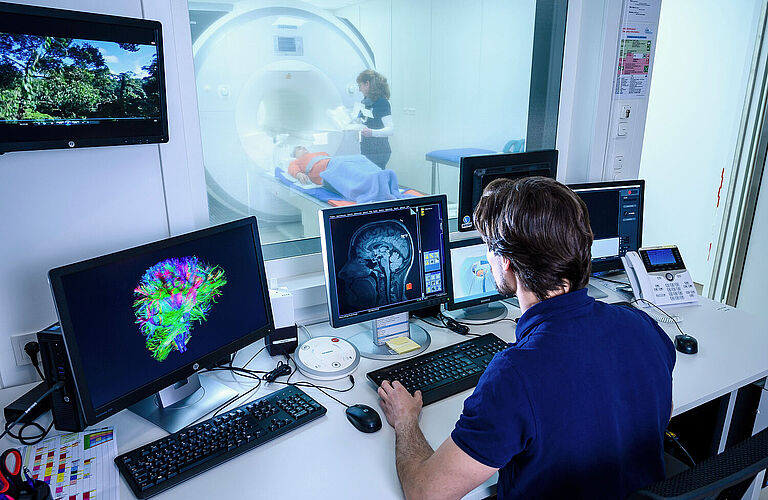Population research
For healthy ageing
In population research, scientists are looking for causes and risk factors: Why are some people more susceptible to neurodegenerative diseases and others remain healthy into old age? And they are investigating what happens when the demographic composition of society changes.
For the first of these complexes of questions - the search for risk factors - the researchers are looking for answers with the help of the Rhineland Study, among others. It is one of the most innovative and largest population studies worldwide, involving more than 20,000 adults from Bonn and the surrounding area: Over decades, their health development is precisely recorded and documented. Every three years, every single participant is examined for seven hours, from questions about lifestyle to cognitive tests and blood and urine samples to a brain scan in a magnetic resonance scanner. From these many thousands of snapshots, the scientists piece together a picture of how hereditary predispositions, lifestyle habits and environmental influences interact when neurodegenerative diseases develop.
A second focus is demographic research. Here, social science methods are used to investigate, for example, what the consequences are when the proportion of patients with neurodegenerative diseases increases in an ageing society.
Population research is based at the DZNE sites Bonn and Tübingen.


